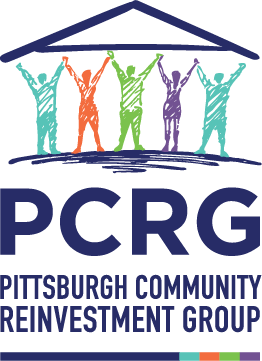After months of tense negotiations with the legislature, Governor Shapiro signed into law the 2024-2025 state budget last month. There were some big wins for communities in the nearly $48 billion budget, including $20 million in Main Street Matters program, $20 million in Historic Preservation Tax Credits, and additional investments in public transportation.
The biggest victory for community organizations was the Neighborhood Assistance Program’s expansion. PCRG was proud to play a role in a statewide coalition of community development organizations, main street organizations, neighborhood advocates, and private partners that worked with a bi partisan group of legislators to get include NAP expansion in this budget.
The coalition worked closely with State Rep. Aerion Abney (D-Allegheny), who introduced House Bill 1429, which would expand the NAP tax credit from $36 million to $72 million and double the corporate contribution limit to $2.5 million. HB 1429 was quickly passed out of the House finance committee in a unanimous, bi-partisan vote – and got full House approval. Abney knew that because of the NAP program’s popularity and its economic impact for communities, the key to getting it included in the budget was to highlight the program’s success. Abney and his colleagues worked to get companion legislation introduced in the Senate, with Sens. Gen Yaw (R- Lycoming) and Nick Miller (D-Lehigh) sponsoring SB 1181.
“I was glad to see that my legislation to expand the Neighborhood Assistance Tax Credit Program from $36 million to $72 million made it into the tax code.” Abney said. “The tax credit supports jobs, bolsters state and local sales tax revenue, addresses social inequity and raises local real estate property tax revenue in targeted communities. It’s programs like NAP that help our commonwealth create communities of first choice, where people want to live, work, play and raise families.”
Tracey Evans, executive director of the Wilkinsburg Community Development Corporation, worked closely with advocates and Abney to see NAP expansion through. The CDC has utilized the NAP program for critical economic development projects in Wilkinsburg over the years. Most importantly, the organization has used NAP investments to increase its capacity to complete these projects. Without the institutional support from the private partners, these investments would not have been possible.
“Wilkinsburg Community Development Corporation has received significant funding support through the PA Department of Community & Economic Development Neighborhood Assistance Program thanks to our corporate sponsors, TriState Capital Bank, Highmark, and Dollar Bank,” Evans said. “This has allowed us to promote Wilkinsburg’s small business community, strong neighborhood initiatives, and advocacy for investment and development.”
Wendy Whelpley, Beaver Falls CDC’s executive director, said the recent NAP expansion is a win for her organization and the Beaver Falls community.
“The Beaver Falls CDC has been utilizing this tax credit program for several years towards the revitalization of our community,” Whelpley said. “The funds have helped us make park and neighborhood improvements, reduce blight, purchase homes and empower new homeowners, and start a weekly farmer's market. Designating more funds to this work in communities across the state will help to make an even larger difference for places that need it most.”
A critical component of the NAP legislation is the corporate contribution limit expansion. Financial institutions are now able to double the corporate contribution amount to $2.5 million. This aspect makes it a competitive tax credit program on par with others, including the Educational Improvement Tax Credit program, or EITC.
One regional corporate partner that has utilized the NAP tax credit program is First Commonwealth Bank. Senior Vice President and Corporate CRA Officer Evan Zuverink is active in communities throughout the region and understands the competitive nature of tax credit programs — both from the corporate side and the community side. First Commonwealth Bank, like other corporations, receives countless inquiries from community organizations looking for investments. However, caps on investments, large application pools, and limited resources made the current tax credit allocations more challenging. Now the NAP expansion will allow for more investments in communities.
“First Commonwealth is pleased to see the fruitful results of the budgetary process bring new capital forward to support community and economic development across the Commonwealth,” Zuverink said “Programs such as the Neighborhood Assistance Program allow regional banks like First Commonwealth to support community organizations and projects at very meaningful levels, and we’re excited by the opportunity to go even further with this work given the improvements to and expansion of the programs.”
This isn’t the first time communities have rallied around the popular tax credit program. In previous budget proposals the program was cut back, or entirely removed, but saved at the last minute. Within the last few years, the program expanded from $17 million to $36 million but continued to be oversubscribed with applications from non-profit organizations. Hearing from community groups and organizations throughout the state on the need to expand the program, and after some hard effort to expand even further the last few budgets, this year was the time to call on the legislature to further expand NAP.
“All the stars were aligned this time. We had the right political environment in Harrisburg – a willing governor, bi-partisan support from both urban and rural legislators and, most importantly, active community organizations making relentless calls, visits, and noise about the successes of this program,” PCRG Policy Director Chris Rosselot said. “It was just about staying the path, keeping at it and showing a united front.”

